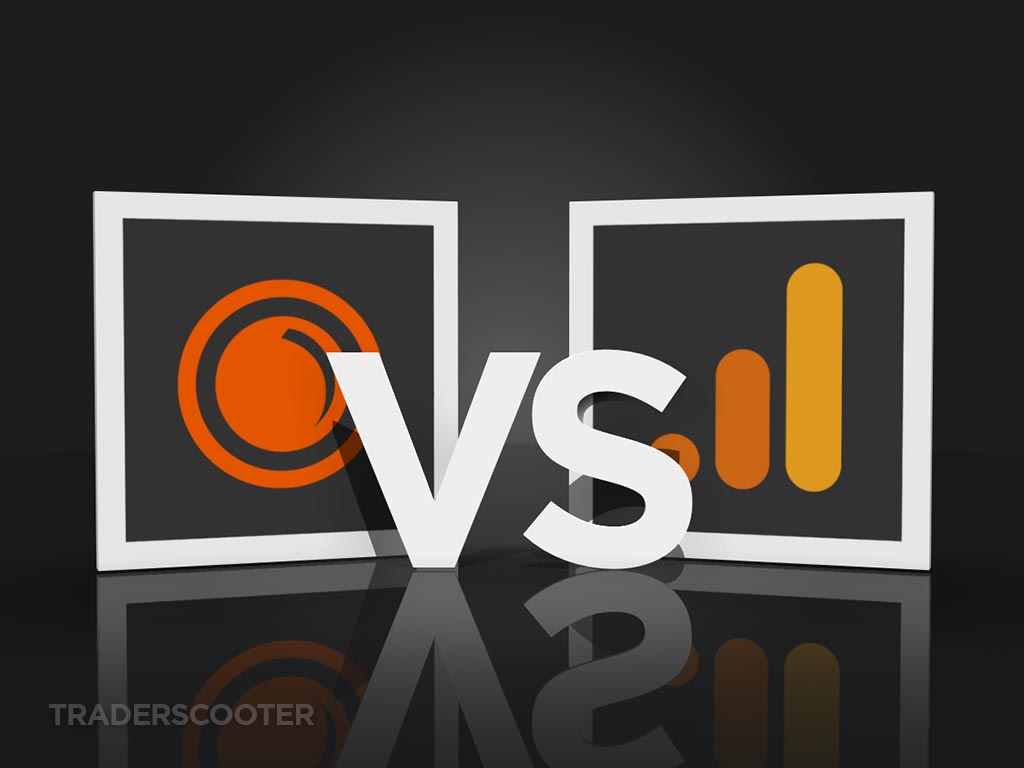Comparing Semrush and Google Analytics: Which One Wins?
Semrush or Google Analytics – Semrush offers comprehensive SEO tools, while Google Analytics focuses on website traffic analysis. Both are essential for digital marketing success.
Digital marketers often debate the benefits of Semrush versus Google Analytics. Semrush provides an array of SEO tools, including keyword research, backlink analysis, and site audits. It helps marketers optimize their content for search engines. Google Analytics, on the other hand, excels in tracking website traffic and user behavior.
It provides insights into visitor demographics, session duration, and conversion rates. Both tools are vital for a well-rounded digital marketing strategy, but they serve different purposes. Understanding their unique features can help marketers make more informed decisions and achieve better results.

Credit: weignitegrowth.com
Overview Of Semrush
Semrush is a powerful tool for digital marketing professionals. It helps in keyword research, competitor analysis, and SEO audits. It offers a wide range of features to enhance your online presence.
Key Features
Semrush offers a variety of key features that set it apart from other tools:
- Keyword Research: Discover the best keywords for your content.
- Site Audit: Check your website for SEO issues.
- Competitor Analysis: Understand your competitors’ strategies.
- Backlink Analysis: Monitor your backlinks and find new opportunities.
- Rank Tracking: Track your website’s ranking over time.
User Interface
Semrush’s user interface is user-friendly and intuitive. It is designed to be easy to navigate, even for beginners. The dashboard provides a comprehensive overview of your website’s performance.
Here is a table that shows the main sections of the Semrush dashboard:
| Section | Description |
|---|---|
| Overview | General performance metrics. |
| Keyword Analytics | Find and analyze keywords. |
| SEO Audit | Identify and fix SEO issues. |
| Backlink Analysis | Check and manage backlinks. |
| Competitor Research | Analyze competitors’ strategies. |
Each section is easy to find and use. This makes Semrush a great choice for both beginners and experts.

Credit: nikolaroza.com
Overview Of Google Analytics
Google Analytics is a powerful tool for tracking website performance. It helps you understand your audience better. With it, you can monitor user behavior, traffic sources, and conversion rates. This allows you to make informed decisions and improve your website’s effectiveness.
Key Features
- Real-Time Reporting: View live user activity on your site.
- Audience Insights: Understand user demographics and interests.
- Acquisition Reports: Discover how users find your website.
- Behavior Reports: Track user actions on your site.
- Conversion Tracking: Measure goal completions and e-commerce metrics.
User Interface
The Google Analytics user interface is intuitive and user-friendly. The dashboard provides a comprehensive overview of your data. It is organized into several sections for easy navigation.
Here is a breakdown of the main sections:
- Home: Quick snapshot of key metrics.
- Real-Time: Live data on current site visitors.
- Audience: Detailed information about user demographics.
- Acquisition: Insights into how users find your site.
- Behavior: Analysis of user interactions with your site.
- Conversions: Data on goal completions and sales.
| Section | Description |
|---|---|
| Home | Overview of key metrics. |
| Real-Time | Live data on current visitors. |
| Audience | Demographics and interests of users. |
| Acquisition | How users find your site. |
| Behavior | User interactions on your site. |
| Conversions | Goal completions and e-commerce metrics. |
Data Accuracy
Understanding data accuracy is crucial for making informed decisions in digital marketing. Both Semrush and Google Analytics offer valuable insights. But, which one provides more accurate data? Let’s dive into the details.
Traffic Measurement
Accurate traffic measurement is vital for understanding your website’s performance. Semrush uses third-party data sources and estimates to measure traffic. This can sometimes lead to less accurate numbers.
Google Analytics, on the other hand, uses direct tracking codes on your website. This provides more precise and reliable data. It captures user interactions in real-time.
| Feature | Semrush | Google Analytics |
|---|---|---|
| Data Source | Third-Party Estimates | Direct Tracking Code |
| Real-Time Data | No | Yes |
| Accuracy | Medium | High |
Keyword Tracking
Keyword tracking helps you understand which keywords drive traffic. Semrush excels in this area. It provides extensive keyword databases and tracking options. You can monitor keyword rankings, search volume, and difficulty.
Google Analytics also offers keyword tracking but is limited compared to Semrush. It focuses more on organic search terms and behavior. This can be useful for understanding user intent and engagement.
- Semrush: Extensive keyword database, detailed tracking, and competitive analysis.
- Google Analytics: Focus on organic search terms and user behavior insights.
Seo Capabilities
Both Semrush and Google Analytics offer robust SEO tools. They help websites improve their search engine rankings. This section explores their SEO Capabilities.
On-page Seo
On-page SEO is crucial for ranking. Semrush provides a detailed Site Audit tool. It checks for common SEO issues. These include missing meta tags, broken links, and slow page speeds. The tool also offers suggestions to fix these problems.
Google Analytics, on the other hand, excels in tracking user behavior. It shows which pages get the most traffic. You can see how users interact with your site. This data helps you optimize content and design.
Backlink Analysis
Backlinks are essential for SEO. Semrush offers a comprehensive Backlink Analytics tool. It shows the number of backlinks, their quality, and their sources. You can also track your competitors’ backlinks.
Google Analytics does not provide a dedicated backlink analysis tool. You can integrate it with Google Search Console. This combination helps you monitor backlink performance. But it lacks the depth of Semrush’s tool.
| Feature | Semrush | Google Analytics |
|---|---|---|
| On-Page SEO | Comprehensive Site Audit | User Behavior Tracking |
| Backlink Analysis | In-depth Backlink Analytics | Requires Google Search Console Integration |
User Experience
User experience is crucial when choosing between Semrush and Google Analytics. Both tools offer unique features, but user experience can make or break your workflow. Let’s dive into the specific aspects of user experience for both platforms.
Ease Of Use
Semrush has a clean and intuitive interface. Users find it easy to navigate. The dashboard is well-organized, offering quick access to various tools.
- Easy-to-understand reports
- Clear visuals and graphs
- Simple navigation
Google Analytics can be overwhelming for beginners. The interface is packed with options and data. It may take time to get used to.
- Complex dashboard
- Advanced features require learning
- Detailed data presentation
Customer Support
Semrush offers robust customer support. Users can access live chat, email, and phone support. They also provide helpful resources and tutorials.
- Live chat support
- Email and phone support
- Extensive tutorials and guides
Google Analytics relies heavily on community forums and help articles. Direct support options are limited. Users often turn to forums for help.
- Community forums
- Help articles
- Limited direct support
| Feature | Semrush | Google Analytics |
|---|---|---|
| Ease of Use | Intuitive | Complex |
| Customer Support | Comprehensive | Limited |
Pricing Comparison
Deciding between Semrush and Google Analytics often boils down to cost. Understanding the pricing structures and the value offered by each tool can help make an informed decision.
Cost Structure
Semrush offers multiple pricing plans. The plans cater to different business needs.
| Plan | Monthly Cost | Annual Cost |
|---|---|---|
| Pro | $119.95 | $99.95/month |
| Guru | $229.95 | $191.62/month |
| Business | $449.95 | $374.95/month |
Google Analytics is free. It offers a premium version, Google Analytics 360, for enterprises.
Google Analytics 360 costs $150,000 per year.
Value For Money
Semrush offers a range of features for its price.
- Keyword research
- Competitor analysis
- Site audit
- Backlink analysis
Google Analytics provides robust data analytics. The free version is sufficient for most users.
For advanced features, Google Analytics 360 is necessary. It offers:
- Advanced funnel reporting
- Data-driven attribution
- Integration with Google BigQuery
Choosing between the two depends on your business needs and budget.
Final Verdict
Choosing between Semrush and Google Analytics can be challenging. Both tools offer unique features. Each one serves different purposes for marketers. In this section, we will discuss the final verdict.
Pros And Cons
| Tool | Pros | Cons |
|---|---|---|
| Semrush |
|
|
| Google Analytics |
|
|
Best Use Cases
Both Semrush and Google Analytics have their strengths. Understanding the best use cases helps you decide.
- Semrush is ideal for:
- SEO professionals
- Content marketers
- Businesses needing in-depth competitor insights
- Google Analytics is perfect for:
- Website traffic analysis
- Tracking user behavior
- Small businesses on a budget
In summary, choose Semrush for comprehensive SEO needs. Opt for Google Analytics for detailed traffic analysis.

Credit: www.traderscooter.com
Frequently Asked Questions
Is Semrush Better Than Google Analytics?
Semrush and Google Analytics serve different purposes. Semrush excels in SEO and competitor analysis, while Google Analytics focuses on website traffic data. Each has unique strengths.
What Is The Strongest Competitor To Google Analytics?
The strongest competitor to Google Analytics is Adobe Analytics. It offers advanced features and deep insights into user behavior.
Who Is Better Than Semrush?
Ahrefs often ranks higher than Semrush for backlink analysis and keyword research. Moz is also a strong alternative.
Is Semrush Traffic Analytics Accurate?
Semrush Traffic Analytics is generally accurate but may not always match internal data. Use it for comparative insights.
What Is The Main Difference Between Semrush And Google Analytics?
Semrush focuses on SEO and competitive analysis, while Google Analytics tracks website traffic and user behavior.
Can Semrush Replace Google Analytics?
No, Semrush and Google Analytics serve different purposes. Semrush is for SEO; Google Analytics is for traffic analysis.
Conclusion
Choosing between Semrush and Google Analytics depends on your specific needs. Semrush excels in SEO and competitor analysis. Google Analytics offers in-depth website traffic insights. Both tools provide valuable data to enhance your digital strategy. Evaluate your goals and budget to determine the best fit for your business.








